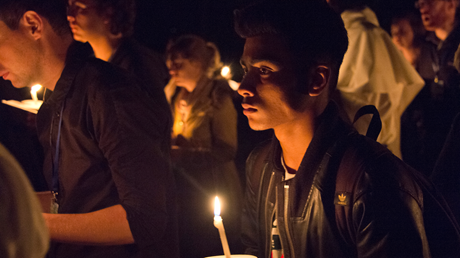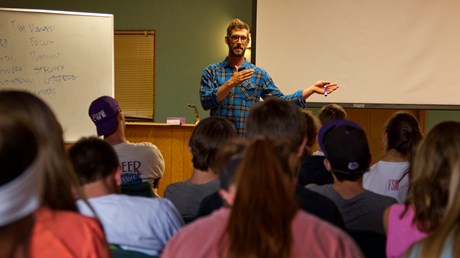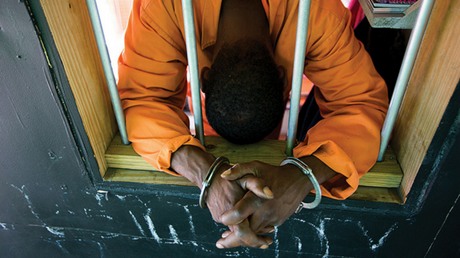Saturday, 30 September 2017
Matthew 5:11-12
from
https://www.biblegateway.com/passage/?version=NIV&search=Matthew%205:11-12
Beyond Twitter, Trump Is Making His Mark
from
http://www.patheos.com/blogs/tippling/2017/09/30/beyond-twitter-trump-making-mark/
No Scalise, You Don’t Get to Appeal to Miracles, You Dolt.
from
http://www.patheos.com/blogs/tippling/2017/09/30/no-scalise-dont-get-appeal-miracles-dolt/
Friday, 29 September 2017
Philippians 1:9-10
from
https://www.biblegateway.com/passage/?version=NIV&search=Philippians%201:9-10
1 in 3 Protestant Churchgoers Personally Affected by Suicide
Survey also finds one-third of victims were attending church before their death, but few pastors knew of their struggle.

Suicide remains a taboo subject in many Protestant churches, despite the best efforts of pastors, according to a new study from LifeWay Research.
Eight in 10 Protestant senior pastors believe their church is equipped to intervene with someone who is threatening suicide.
Yet few people turn to the church for help before taking their own lives, according to their churchgoing friends and family. Only 4 percent of churchgoers who have lost a close friend or family member to suicide say church leaders were aware of their loved one’s struggles.
“Despite their best intentions, churches don’t always know how to help those facing mental health struggles,” said Scott McConnell, executive director of LifeWay Research.
A common tragedy
Suicide remains a commonplace tragedy, according to data from the US Centers for Disease Control and Prevention. More than 44,000 Americans took their own lives in 2015, the most recent year for which statistics are available. Suicide is the second leading cause of death for Americans ages 15 to 34, and the fourth leading cause of death for those 35 to 44.
LifeWay Research found suicide often affects churches. Researchers surveyed 1,000 Protestant senior pastors and 1,000 Protestant and nondenominational churchgoers who attend services at least once a month, in a study sponsored by the American Association of Christian Counselors, Liberty University Graduate Counseling program, the Liberty University School of Medicine, and the Executive Committee of the Southern Baptist Convention.
LifeWay’s study found three-quarters (76 percent) of churchgoers say suicide is a problem that needs to be addressed in their community. About a third (32 percent) say a close acquaintance or family ...
from
http://feeds.christianitytoday.com/~r/christianitytoday/ctmag/~3/gzvBxlnfB6M/protestant-churches-pastors-views-on-suicide-aacc-liberty.html
Jonathan Haidt: The Conflict Between Truth and Social Justice at Universities – a response
from
http://www.patheos.com/blogs/tippling/2017/09/29/haidt-the-truth-and-sjws-at-uni-a-response/
NHCLC: Thousands of Puerto Rican Churches Wrecked by Maria
Caribbean Christians try to offer sanctuary while working to repair their own.

Just over a week after Hurricane Maria tore through Puerto Rico, reports are beginning to reveal its impact on the island’s Christian community, including more than 1 million Protestants.
Approximately 3,000 churches were damaged or destroyed by the Category 4 hurricane, the National Hispanic Christian Leadership Conference (NHCLC) estimated. Wanda Rolón, an NHCLC board member and one of Puerto Rico’s best-known pastors, said that she was “not aware of a single church that escaped damage or harm.”
In addition to flooding, downed trees, and buildings ripped apart by 150 mph winds, the storm cut off electricity and communications networks. The Christian TV station, CDM Internacional, as well as several Christian radio stations went off the air. A Bible distribution ministry lost its inventory when its building was hit.
Of about 90 Southern Baptist churches in Puerto Rico, so far the North American Mission Board (NAMB) has heard from a dozen, all of which suffered limited damage, Baptist Press reported.
As relief efforts make their way out from San Juan, local churches serve as a crucial connection point for spiritual and physical support.
“We don’t have buildings right now to have meetings,” evangelist and doctor Luis Paz told CT in Puerto Rico last Sunday. “We are outside, bringing hope to people, the ones that need the most. We have brothers and sisters who don’t have homes right now, but the church is open to them.”
About half of Puerto Ricans go to church at least once a week, according to the Pew Research Center. (Most of the island’s 3.4 million residents are Catholic, and about a third are Protestant.) But some churches haven’t had power since ...
from
http://feeds.christianitytoday.com/~r/christianitytoday/ctmag/~3/_B12DeHBevs/nhclc-3000-puerto-rico-churches-damaged-hurricane-maria.html
Breathing New Life into the Christian University
What would it look like if higher education were grounded in the worship, love, and study of God?

Some weeks ago I woke up to Twitter going crazy. I opened the video that was getting so much attention, and there was my friend and former colleague, now president of Evergreen State College in Washington State, facing an assault by a wildly angry group of students. You could hear some of the exchange: “F*** you, George. You talk so f***ing much. Just shut up, George.” These comments were directed at the president of the university! It made my heart sick, and not only for my friend. Here was yet another signal that something is deeply broken on our campuses.
The university is one of the great institutions in the history of Western civilization. And yet it feels like something is slipping away. Watching this video and witnessing so many other scenes like it, I feel the aching need for our nation to regroup on where our universities are headed. We need to get back to a bedrock question: What exactly is the university for? These scenes cry out for a wholly revised vision for higher education in our day.
The moment is ripe, then, for a book like Restoring the Soul of the University: Unifying Christian Higher Education in A Fragmented Age. The authors are three professors, Perry L. Glanzer, Nathan F. Alleman, and Todd C. Ream (the first two from Baylor University, the third from Taylor University). As I pondered this stimulating book, I began to glimpse the outlines of a renewed vision for the future of the broken university. This book is sweeping in concept, grounded in historical research, utterly relevant to contemporary concerns. The focus is ultimately on the Christian university. And the animating question can be put like this: What if the unifying center of the university, its soul, were reclaimed by a winsome ...
from
http://feeds.christianitytoday.com/~r/christianitytoday/ctmag/~3/7CwKW0SlfyY/breathing-new-life-into-christian-university.html
Think Fake News Is Scary? Try False Teaching
We learn to spot a lie by studying the truth.

The headline hit my Facebook feed at the peak of lake season: “Freshwater Shark Caught in Lake Lewisville.” Purportedly, a shocked fisherman landed a shark in the lake adjacent to my town. By the time the local news debunked the story, it had been shared over 100,000 times.
It is a classic example of “fake news,” complete with a clickbait photo of a child next to a giant shark on a dock. In a sly stroke of comedy, the fisherman’s name was listed as “Ima Lion,” and his granddaughter’s as “Shebe Lion.”
Shared over 100,000 times. The fine residents of Lewisville, minds cuing the theme from Jaws, swore never again to enter the murky waters of Lake Lewisville. My neighbors laughed in hindsight, but the fake news provider laughed all the way to the bank.
Fake news is not always as benign as an improbable shark tale. It can influence elections, defame character, incite unrest, and propagate fear. It has always existed, but digital media has given it momentum and reach like never before.
Growing awareness of its prevalence and potential dangers has reminded us of the importance of gauging the credibility of a story’s source, fact-checking its content, and analyzing its message for bias. It has also renewed our appreciation for time-tested, reliable news sources that have consistently demonstrated journalistic integrity.
Think fake news is scary? Try false teaching. The Christian equivalent to journalistic misinformation commits the same kinds of deception with much more at stake. Like fake news, false teaching has enjoyed a long history. The original misinformer appears in the earliest moments of human history, whispering into Eden’s atmosphere, “Did God really ...
from
http://feeds.christianitytoday.com/~r/christianitytoday/ctmag/~3/40fhhvqCuFc/jen-wilkin-fake-news-false-teaching-bible-literacy.html
The Biblical Call for Justice: Mass Incarceration and the Role of the Church
America locks up more of its citizens than any other nation.

A single mother is arrested and held in jail overnight for driving with a suspended license that she could not afford to renew. A prisoner with mental illness is languishing in solitary confinement. A young man who paid his debt for a drug offense and wants to start fresh can’t find a job or housing because of his criminal record. Crime demands a response, but are we missing the mark in our pursuit of justice in America?
What’s Wrong?
America locks up more of its citizens than any other nation and, according to the Pew Charitable Trusts, all states have become more punitive. Even though overall crime and arrest rates are down from the early 1990s, states are exacting sentences at a rate 165 percent harsher than they were for the same crimes previously.
Prosecutors now seek felony charges after an arrest much more frequently than they did even a decade ago. The effects of such broken justice? 2.7 million children have an incarcerated parent, including 1 in 9 African-American children. And an estimated 1 in 4 Americans has a criminal record which creates obstacles to finding housing, jobs, and other life necessities. The problem is so far-reaching that every congregation is impacted by the crisis of crime and incarceration.
A new Barna poll commission by Prison Fellowship reveals that the vast majority of Christians believe the main goal of the justice system should be restoration for all involved—the victim, the community, and the person responsible. Practicing Christians were also more likely to believe caring about prisoners was important as a result of their values. That’s encouraging.
However, when asked if it was acceptable for someone to be punished more than their crime deserved in order to make ...
from
http://feeds.christianitytoday.com/~r/christianitytoday/ctmag/~3/hXwSMjZRrks/biblical-call-for-justice-mass-incarceration-and-role-of-ch.html
Thursday, 28 September 2017
Hugh Hefner, Mourning, and Legacies: Beyond the Pipe and the Robe
“Is sex better because of Hugh Hefner?”

Hugh Hefner has died at the age of 91.
Some of you may wonder why I am writing about a man best known for his pipe, his robe, and for taking the sexual revolution and promiscuity to a new level.
If we are honest, we’d be hard pressed to find something affirming to say about him from a Christian-values standpoint. And yet what trumps all of that in moments like this is this: he was made in the image of God, just like me and you.
And as followers of Christ, we mourn his death.
Christianity Today published a long form article years ago that is worth your time to read. The subtitle lays out the agenda: “How the Playboy magnate won the culture war, lost his soul, and left us with a mess to clean up.” Now we cannot know about his soul, but we can look at his life and ask, “What’s our response and what can we learn?”
Many Christians (including those who look at porn) will speak out today about their disgust for what Hefner personified, lived, and left as his legacy. But I believe that death should always be accompanied by mourning, even the deaths of those with whom we disagree. Yet, deaths should cause us to pause and think about the idea of legacy—what we each leave behind, whether good or bad.
Hugh Hefner made immorality trendy. This is not to say that men have not always liked to look at naked women.
And it’s not that he invented immorality. But what he did do is mainstream it.
So, today, I don’t imagine you will see many articles in which people talk about mourning and legacy, at least in the mainstream news. My guess is they will focus on robes, pipes, and liberation. But, as Christians, we need to think more deeply and somberly. I think this is a moment when our own understanding ...
from
http://feeds.christianitytoday.com/~r/christianitytoday/ctmag/~3/3U5Vy_ge7kA/hugh-hefner-mourning-and-legacies.html
God Loves a Cheerful Itemizer
Experts assess how Trump tax reform plan to double the standard deduction would cost ministries.

If you make between $50,000 and $100,000 a year, you’ll probably give less to charity under President Donald Trump’s proposed tax plan.
So says a study commissioned by Independent Sector, a coalition of nonprofits, foundations, and corporate giving programs.
Back in May, researchers from Indiana University’s Lilly Family School of Philanthropy ran the numbers on the Trump administration’s proposal to double the standard deduction from $6,300 to $12,600 for individuals, and from $12,600 to $24,000 for joint filers.
This week, key Republicans affirmed the plan, which also increases the child tax credit and eliminates most itemized deductions except for mortgage interest and charitable contributions.
The changes, which still have to get past Congress, would mean less money in the federal government’s pockets—and also mean less for ministries.
“The Unified Framework for Fixing Our Broken Tax Code is just that—a framework,” said Dan Busby, president of the Evangelical Council for Financial Accountability (ECFA). “The details”—many of which are left up to Congress to decide—“are what will tell the real story.”
Busby broke down for CT how Trump’s proposals would affect charitable giving:
- Lowering corporate tax rates and the pass-through rates for small business are pro-growth elements, placing more dollars in the hands of those who support churches and ministries. That is good for ministries, but the impact will tend to be long-term.
- The elimination of the personal deduction reduces available resources to make charitable deductions.
- The repeal of the death tax removes the significant incentive for many to make charitable contributions to avoid this tax.
from
http://feeds.christianitytoday.com/~r/christianitytoday/ctmag/~3/iJgHfzzE6bk/god-loves-cheerful-giver-tax-reform-charitable-deduction.html